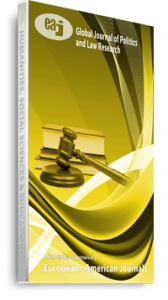This Paper examines the problems of absence of Sentencing Guidelines and Prison Congestion in Nigeria. It compares these in passing with the position in the United Kingdom. The Paper finds that the absence of Sentencing Guidelines does not encourage use of non-custodial options in sentencing but allows for uncoordinated exercise of judicial discretion in custodial sentences, which leads to prison congestion, disparity and uncertainty in penalties inflicted on prisoners convicted of same or similar offences. This is despite the efforts made in the Administration of Criminal Justice Act 2015 at providing scanty sentencing guidelines to solve the problem of uncoordinated sentencing. It concludes that comprehensive Sentencing Guidelines and Nigeria Sentencing Commission should be created to ensure adequate use of non-custodial sentences in deserving cases, uniformity and certainty in custodial sentences, and decongestion of correctional centres. The paper suggests solutions to bridge the gap, one of which is a recommendation that a penal law be enacted or existing ones amended to accommodate comprehensive Sentencing Guidelines and Sentencing Commission in Nigeria’s criminal justice system. Analytical, comparative, descriptive, doctrinal, and empirical research methods are used in collating and scientifically analysing relevant statutes, statutory instruments, reports, judicial authorities, learned articles and textbooks, and interviews. These are followed with conclusion and recommendations.
Citation: Festus Okpoto Agbo (2022) Sentencing Guidelines and Prison Congestion in Nigeria: Challenges and Prospects for Decongestion, Global Journal of Politics and Law Research, Vol.10, No.6, pp.27-42
Keywords: Congestion, Nigeria, decongestion, prisons, sentencing commission, sentencing guidelines

